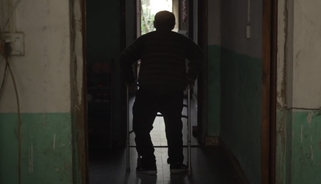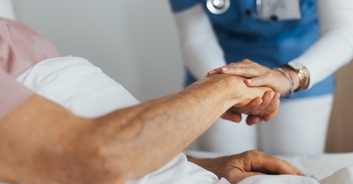Last year, iconic singer Celine Dion had to break the hearts of her fans by canceling her Courage World Tour dates through 2024 due to complications from Stiff-Person Syndrome (SPS), a rare neurological condition.
Watch Dion reveal her heartbreaking diagnosis below:In December, her sister, Claudette Dion, revealed that the legendary singer had "lost control over her muscles".
In an interview with Canadian outlet 7 Jours, Claudette Dion expressed her sadness over her sister's condition, saying: "What pains me is that she has always been disciplined. She always worked hard."
However, there was a glimmer of hope and inspiration last night when Celine Dion made a surprise appearance at the 2024 Grammys. As she prepared to announce the Album of the Year winner, she received a standing ovation from the crowd, demonstrating her resilience and determination.
But what exactly is Stiff-Person Syndrome, and how does it impact the legendary singer? Here's a breakdown of what you need to know:
What is Stiff-Person Syndrome (SPS)?According to the National Institute of Neurological Disorders and Stroke (NINDS), SPS is an exceedingly rare and progressive neurological disorder characterized by the following symptoms:
- Stiff Muscles: Individuals with SPS experience stiffness in the trunk (torso), arms, and legs.
- Heightened Sensitivity: They may also exhibit increased sensitivity to noise, touch, and emotional distress, which can trigger muscle spasms.
- Postural Changes: Over time, people with SPS may develop hunched-over postures, and some may become too disabled to walk or move.
- Falls and Injuries: Many individuals with SPS are prone to frequent falls due to their lack of normal reflexes to catch themselves, which can lead to serious injuries. This fear of falling can even make them reluctant to leave their homes.

NINDS reports that SPS predominantly affects:
- Females: It affects twice as many females as males.
- Autoimmune Associations: It is often linked to other autoimmune diseases like type-I diabetes, thyroiditis, vitiligo, and pernicious anemia.
While the exact cause of SPS remains elusive, research suggests that it results from an autoimmune response gone awry in the brain and spinal cord.
Diagnosis and Treatment of SPSDiagnosing SPS can be challenging as it is frequently misdiagnosed as other conditions like Parkinson's disease, multiple sclerosis, fibromyalgia, psychosomatic illnesses, or anxiety and phobias. A definitive diagnosis typically involves a blood test to measure the level of glutamic acid decarboxylase (GAD) antibodies.
Effective treatment options aim to manage SPS symptoms. Some individuals experience improvements with oral diazepam, a muscle relaxant and anti-anxiety medication, or with drugs that alleviate muscle spasms such as baclofen or gabapentin.
Additionally, a study funded by the National Institute of Neurological Disorders and Stroke (NINDS) revealed the effectiveness of intravenous immunoglobulin (IVIg) treatment in reducing stiffness, sensitivity to noise, touch, and stress, and enhancing gait and balance for people with SPS. IVIg contains immunoglobulins derived from numerous healthy donors and has demonstrated promising results.
Celine Dion's ongoing battle with Stiff-Person Syndrome underscores her determination and strength in the face of adversity. Her remarkable appearance at the 2024 Grammys serves as an inspiration to all, highlighting the importance of raising awareness about rare neurological conditions like SPS.












